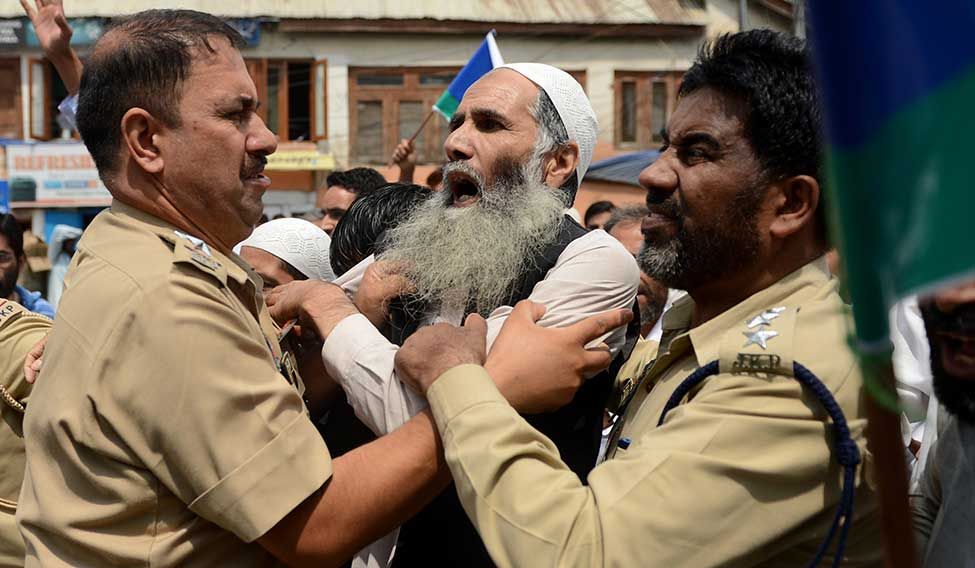The only group that may have benefited directly from the collapsed National Security Adviser-level talks between India and Pakistan is the marginalised All Parties Hurriyat Conference. The two factions of the group, led by the moderate Mirwaiz Umar Farooq and the hardliner Syed Ali Shah Geelani, gained some publicity following Pakistan's insistence to engage with them before the talks.
A senior political analyst said Pakistan's invitation to the Hurriyat leaders was aimed at making them relevant in Kashmiri politics. “The Hurriyat has lost it relevance. It has been pushed to the fringes by pro-election parties like the National Conference and the Peoples Democratic Party. Pakistan wants to use the Hurriyat leaders to extract a better bargain.'' The Hurriyat, many believe, lost it relevance because of internal bickering and turf wars. The strengthening of the mainstream politics caused by the emergence of the PDP, which espouses causes comparable with that of the Hurriyat, has also hurt the separatist movement. The soft, separatist card that the PDP has played since 2002 has robbed the Hurriyat leaders of their agenda.
The growth of the PDP has also helped the NC to value the support of its electorate and not take power for granted. ''It has only made the NC better,'' the analyst said. It has diminished the importance of the Hurriyat, locally and nationally. The militant leadership command far greater influence in Kashmir today than the Hurriyat.
The Hurriyat has blamed the Centre for the cancellation of the talks. ''It is a diplomatic victory for us as well as Pakistan,” said Hurriyat (Geelani) spokesman Ayaz Akbar. “A message has gone to the world that the Kashmir issue is not a bilateral territorial dispute between India and Pakistan and that the people of J&K are a principal party to it,” he said.
Muhammad Yasin Malik, chairman of the Jammu and Kashmir Liberation Front, said he wanted to inform External Affairs Minister Sushma Swaraj that the Kashmiri people were not a third party to the Kashmir issue. “The Kashmiris are the owners of the land and no power can change their status,” he said. The Mirwaiz said the only way forward for the resolution of issues between India and Pakistan is dialogue and deliberations. He blamed New Delhi for the cancellation of the talks. His spokesman said the conditions put forth by India were “so absurd and unrealistic that it seemed they were deliberately trying to find an escape route from the dialogue”.
The collapse of the talks, meanwhile, has parties like the PDP worried about the worsening security situation. "The PDP is very clear that Kashmir should be seen as a facilitator and a bridge between India and Pakistan and not an irritant,'' said Waheed-ur-Rehaman Parra, a political analyst working for Chief Minister Mufti Mohammad Sayeed.
The agenda for alliance agreed between the PDP and BJP had emphasised on dialogue between India and Pakistan. PDP insiders credit the peace on the borders during their first term in power [2002-2005] to the leadership of prime minister Atal Bihari Vajpayee and Pakistani president and military dictator Pervez Musharraf. The cancellation of the talks has added to the PDP's woes. ''Right now we don't have enough money to fund developmental projects,” said a PDP insider. “Nor do we have peace on the borders.”







